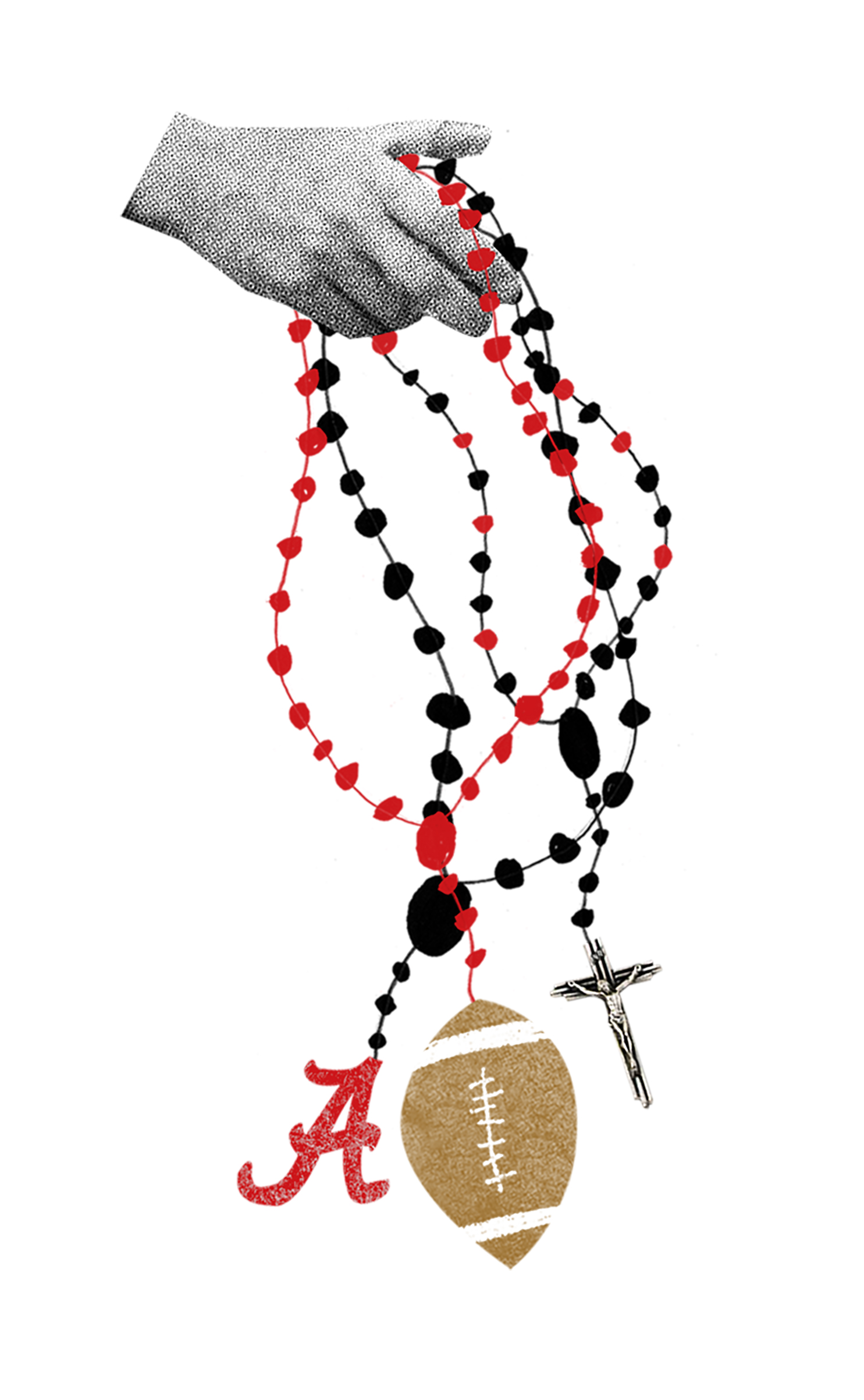
It has been said that college football is a religion, and Saturday is its High Holy Day. So I was not surprised when I found myself at synagogue in Knoxville in September on Kol Nidre, the Friday evening start of Yom Kippur–the most solemn day of the Jewish year–and the rabbi asked who I favored in the next day’s Georgia-Tennessee game.
Of course he did. If college football is America’s lay religion, the South is its ecumenically evangelical center. Nowhere is the passion more intense than on the campuses of the 14 colleges of the Southeastern Conference and among their fans.
The fervor traces back to 1926, when the University of Alabama beat Washington in the Rose Bowl and gave Southerners something to celebrate on the national stage for the first time in about 70 years. Football buoyed us again through the civil rights era. When Alabama Governor George Wallace shamefully stood in the schoolhouse door in Tuscaloosa, the legendary coach Bear Bryant was roaming the sideline around the corner. The state may have been the laughingstock of the nation in most every category–but it was elite in football.
It still is under Nick Saban, who has made as much as $11 million a year leading the Alabama football team to five of the last nine national championships. That’s an extraordinary sum for a public employee, yet the president at the time of Saban’s hiring called him “the best financial investment this university has ever made.”
The eye-popping salaries for Saban and his fellow SEC coaches are a result of the league’s remarkable growth. In the 1970s, each SEC school received an annual payout of approximately $200,000 from the league. The number rose as more games were televised in the ’80s and ’90s. By 2007, the number had ballooned to $10.2 million. Last year, thanks to the College Football Playoff and the creation of the SEC Network, each school reportedly took in an average of $41 million.
For diehard SEC fans, nothing means more than game day. Dick Coffee attended 781 straight Alabama games before his death at age 91. He watched his final, when ‘Bama beat Notre Dame in 2013 for the national title in Miami, from a wheelchair. Freeman Reese made it to 701 consecutive Alabama games before the flu ended the streak. But his run did include a game against Tennessee that caused him and his wife Betty to miss their daughter’s wedding. “We warned her,” Reese said, noting that they made it in time for the reception.
Occasionally the fanaticism is downright criminal. In 2011, an Alabama fan named Harvey Updyke called our radio show to brag that he had poisoned the iconic trees at Toomer’s Corner on the Auburn campus. On live radio, I asked him, “Did they die?” He replied, “They’re not dead yet, but they definitely will die.” I asked, “Is that against the law to poison a tree?” He replied, “You think I care? Roll damn Tide.”
Updyke was arrested after his radio confession and eventually served a short jail sentence, but he became a mini celebrity as a result. Neighbors probably should have seen it coming, though. His two oldest children answered to Bear Bryant and Crimson Tyde, and he wanted to call his youngest Ally Bama, but his wife threatened to walk. She did, however, allow the dog to be named after Alabama coach Saban.
Perhaps the best way to understand the SEC is to think of it as football’s megachurch. It matters little if you are in the first pew or the last, you’re still part of the congregation. It doesn’t matter which school you root for, or even if you went to one. It doesn’t matter if you were a fan from birth who grew up playing football and attending college games with the family, or are a recent convert after marrying into the fold.
Indeed, even as the South changes, football and religion are never too far apart. The Archbishop Joseph Marino, now the Papal Nuncio to Malaysia, grew up in Birmingham in an Auburn family. In the 1990s, he was working in the Vatican for Pope John Paul II and was asked to entertain then Alabama coach Gene Stallings. The Alabama-Auburn rivalry was mentioned during the tour, and Stallings pressed the diplomat to declare his allegiance. “I told Coach Stallings that I had applied to go to Auburn, like my father and two brothers,” Marino said, “but then changed my mind to enter the seminary.” Coach Stallings paused for a moment, and then deadpanned: “That’s when the good Lord really saved you!”
Finebaum is the host of his namesake show on ESPN Radio and the co-author of My Conference Can Beat Your Conference: Why the SEC Still Rules College Football
This story is part of TIME’s August 6 special issue on the American South. Discover more from the issue here.
More Must-Reads From TIME
- The 100 Most Influential People of 2024
- Coco Gauff Is Playing for Herself Now
- Scenes From Pro-Palestinian Encampments Across U.S. Universities
- 6 Compliments That Land Every Time
- If You're Dating Right Now , You're Brave: Column
- The AI That Could Heal a Divided Internet
- Fallout Is a Brilliant Model for the Future of Video Game Adaptations
- Want Weekly Recs on What to Watch, Read, and More? Sign Up for Worth Your Time
Contact us at letters@time.com